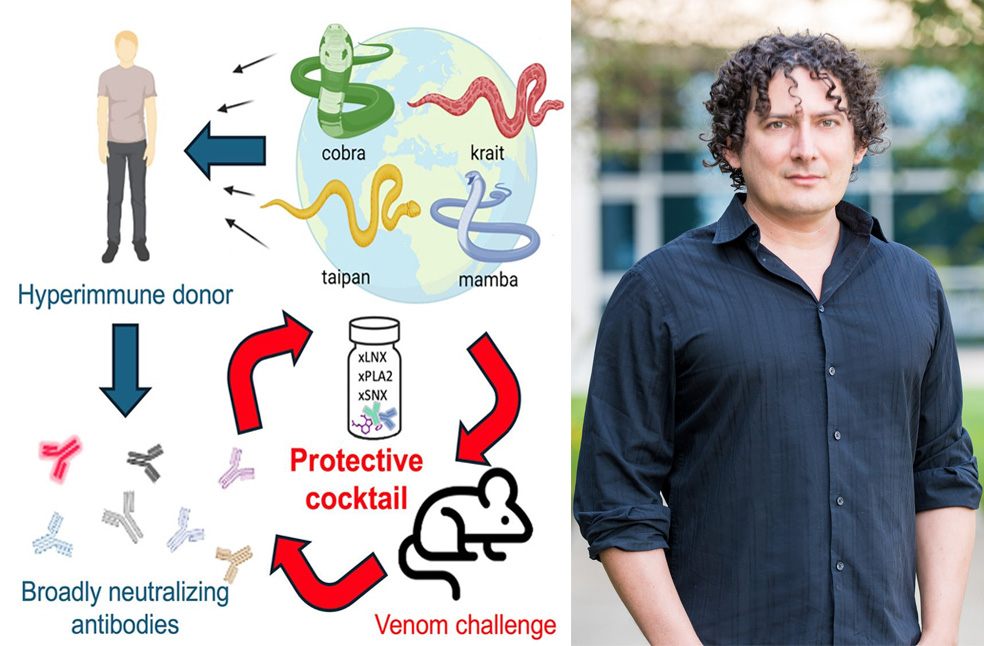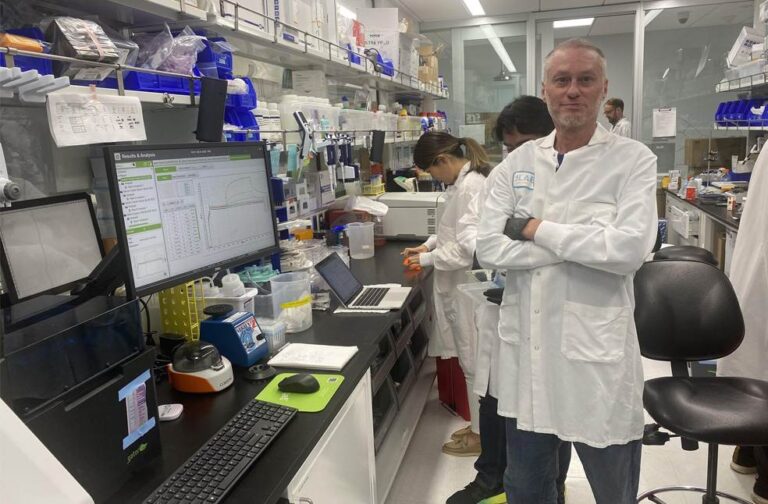San Francisco, USA: Scientists say a major step toward developing a universal antivenom has emerged from the blood of Tim Friede, a US man who deliberately injected himself with snake venom over 18 years.
Friede’s blood contains powerful antibodies that, in lab tests, protected animals from lethal doses of venom from a wide range of deadly snake species. His unique immune response offers a new avenue for creating broad-spectrum antivenoms, addressing a major global health problem that causes up to 140,000 deaths and leaves over 400,000 people annually with amputations or lifelong disabilities.
Current antivenoms must match the specific species of venomous snake, and even the same species can vary by region, meaning a product developed in India may be less effective in Sri Lanka.

In contrast, Friede’s blood appears to offer protection across multiple species, especially those from the elapid family of snakes, which includes cobras, mambas, kraits, taipans, and coral snakes. Elapid venom is primarily neurotoxic, paralyzing victims and potentially halting breathing.
Friede endured over 200 snake bites and more than 700 venom injections from some of the world’s deadliest snakes. Initially, he aimed to build personal immunity for handling snakes safely, sharing his progress on YouTube. But early on, a pair of cobra bites nearly killed him, putting him in a coma. He later shifted focus, determined to help those in developing countries who suffer most from snakebites.
His unusual case attracted the attention of Dr. Jacob Glanville, CEO of the biotech company Centivax, who suspected Friede may have developed the broadly neutralizing antibodies researchers were hunting for, immune defenses that target shared elements across toxin types, rather than unique features of individual venoms.
Glanville contacted Friede, requesting blood samples under ethically approved research conditions. “The first call, I was like ‘this might be awkward, but I’d love to get my hands on some of your blood,’” Glanville recalled.
The team focused on the 19 most lethal elapid species identified by the World Health Organization. Through extensive analysis of Friede’s blood, they discovered two broadly neutralizing antibodies capable of targeting two classes of neurotoxins. They also added a drug that targets a third class, creating a potent antivenom cocktail.

Published in the journal Cell, the study demonstrated that this antibody cocktail enabled mice to survive fatal doses of venom from 13 of the 19 snake species tested, and showed partial protection against the rest. Dr. Glanville called this ‘unparalleled’ breadth of protection, noting it covers many elapids for which no current antivenom exists.
The researchers are now working to further refine the antibodies and explore whether adding a fourth component could extend full protection across all elapid venoms. They also aim to eventually create effective antivenoms for vipers, the other major venomous snake family, which use haemotoxins that damage blood and tissues. Other toxins in venom include cytotoxins, which directly kill cells.
Ultimately, the goal is to develop either a single universal antivenom or a two-part solution: one for elapids and another for vipers.
For Friede, reaching this scientific milestone offers a deep sense of fulfillment. “I’m doing something good for humanity and that was very important to me, I’m proud of it. It’s pretty cool.” he said.



